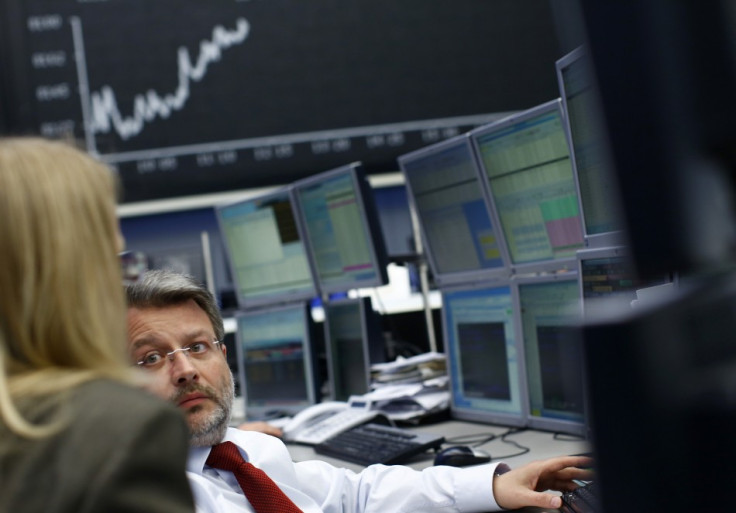European Markets Rise over Delay in US Action against Syria [VIDEO]

European markets opened higher on Monday after US President Barack Obama's decision to defer military strikes against Syria calmed frayed nerves across the region.
The Stoxx Europe 600 index opened 0.9% higher to 299.86.
Britain's FTSE 100 opened 1.1% higher.
France's CAC 40 opened 1.3% higher.
Germany's DAX opened 1.4% higher.
Italy's FTSE MIB was up 1.38% in early trade.
Spain's IBEX 35 was up 1.59% in early trade.
On 31 August, in an address to the American people, President Obama said he intended to take military action over Syria's alleged use of chemical weapons, but would seek the support of Congress in authorising air strikes.
Any strikes will not now take place until Congress convenes to debate the action on 9 September.
German Chancellor Angela Merkel and her rival in the country's upcoming election, Peer Steinbrueck, have reportedly said they would not participate in a military strike against Syria.
The US is believed to have mobilised its nuclear-powered aircraft carrier USS Nimitz along with four destroyers and a cruiser. Although it is not clear if the destination of the vessel is the Mediterranean, it is reported to be part of the ongoing Syria strike plan.
"It's about leveraging the assets to have them in place should the capabilities of the carrier strike group and the presence be needed," an unnamed American official told Reuters.
In a separate development, the Arab League has also urged the international community to take punitive action against Syria over its alleged use of chemical weapons.
Market participants in Europe will be tracking manufacturing purchasing managers' index (PMI) data coming in from the UK and the Eurozone's statistics office during the day.
Financial markets in the US will remain closed on Monday for the Labour Day holiday.
In Asia and the US
In Asia, the Japanese Nikkei finished 1.37% higher while Australia's S&P/ASX finished 1.04% higher. South Korea's Kospi ended 0.08% lower on Monday.
Earlier in Asia, markets witnessed mixed trading, while Hong Kong stocks rallied, even as positive China factory activity data suggested that the world's second largest economy was improving.
China's manufacturing sector recovered in August as it posted an expansion in activity following three months of deterioration, thanks to the stimulus measures announced by the government.
The HSBC manufacturing purchasing managers' index (PMI) showed a final reading of 50.1 in August, up from an 11-month low of 47.7 in July. The reading, however, slightly missed economists' expectations of 50.2. Earlier, government data showed that manufacturing PMI rose to 51.0 in August compared with 50.3 in July.
Most markets across the region finished the week ended 31 August and the month lower. For the week, South Korea's Kospi led the pack while the Japanese Nikkei trailed. For the month of August, the Shanghai Composite was ahead while the Japanese Nikkei lagged behind.
On Wall Street, indices ended lower on 30 August amid uncertainty surrounding a possible US-led military strike on war-torn Syria.
The Dow finished 30.64 points lower at 14,810.31, pulled down by Alcoa and Verizon. The S&P 500 closed 5.20 points lower at 1,632.97, while the Nasdaq ended 30.43 points lower at 3,589.87.
For the month, the three indices logged their worst declines since May 2012. The Dow lost 4.45%, the S&P 500 dropped 3.13%, and the Nasdaq shed 1.01%.
"Fear driven selling over a possible military strike in Syria has presented a good buying opportunity for investors. With the vote from Congress not likely to occur until next week, and with the vote also likely to reflect broader negative sentiment from the voting population, just like in the UK, Syria will soon be forgotten by investors, with taper concerns again becoming the leading worry," said Tim Radford, global analyst at Rivkin Securities.
However, "with tapering already largely priced into asset prices, reduced uncertainty levels could see some decent upside in US equities leading into Friday's jobs data," Radford added.
© Copyright IBTimes 2025. All rights reserved.






















